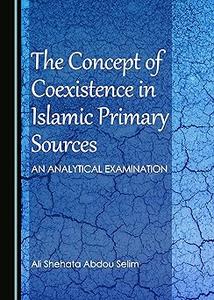
Free Download Ali Shehata Abdou Selim, "The Concept of Coexistence in Islamic Primary Sources: an Analytical Examination"
English | ISBN: 1443872253 | 2015 | 330 pages | PDF | 1317 KB
The terms 'coexistence', 'partnership', 'citizenship' and 'globalization' all have a profound impact on today's decision makers and their policy formation, as well as on individuals. While these terms have been widely used all over the world, particularly in the West, in the construction of identity, they have been considered unworthy of a detailed analysis in the context of Muslim identity. Some scholars argue that Muslim-Christian relations are caught between advocates of homogenization, on the one hand, and supporters of self-affirmation on the other. While the former concept favours relativism, the latter is seen to encourage fanaticism. In addition, such scholars claim that the tension between Muslims and Christians is due to a complex history of rivalry and war, which has led to the issue of Muslims' positive coexistence being elucidated from historical and sociological points of view. There has, until recently, been a lack of scholarly interest in the West in a number of Islamic terms such as Al-Maslahah (the consideration of public interest), and the theological aspects of coexistence have not yet been fully explored, though Muslim scholars and many sociologists and anthropologists stress the significance of Islam as a system of norms and values. Hence, given Muslims' increased visibility, the consideration of religious factors should occupy an important place in the study of globalization and coexistence. This book is an analytical examination of the concept of coexistence, adopting a novel approach to these issues in the English language. Given the paucity of literature regarding a faith-based study of Muslim coexistence, this book elaborates on the theological aspect of Muslims' coexistence in non-Muslim lands, and raises a number of theological questions, arguments and counter-arguments pertinent to this issue. Is it permissible for Muslims to live in a non-Muslim country? Is it permissible for Muslims to acquire non-Muslim citizenship? What are the obstacles? How do Muslims perceive civic duties in non-Muslim countries? Are Muslims obliged to fulfil them? The book presents a number of scholarly discussions from past and contemporary sources, as well as international human rights treaties, which stress the significance of the much-overlooked factor of context.
Read more
